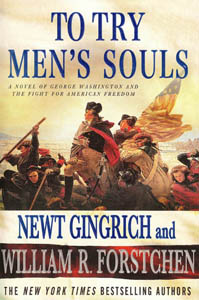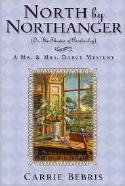This review contains affiliate links, which earn me a small commission when you click and purchase, at no extra cost to you. Thank you for supporting my small business and allowing me to continue providing you a reliable resource for clean book ratings.
The American rebels did not observe Christmas in December 1776; rather, General George Washington took the opportunity of inclement weather and the holiday to mount a surprise attack against the elite Hessian force in occupied Trenton, New Jersey. This involved the famous midnight crossing of the Delaware River, immortalized forever in the painting by Emanuel Leutze.
The summer and fall of 1776 yielded massive numbers of recruits for the Continental Army. Unfortunately, by December, there had been plenty of retreats and no victories for these farmer/soldiers, and morale was at rock bottom. Many citizens believed that the writing was on the wall, and soon British forces would finish decimating the ragtag group of rebels, and the fight for independence would be over. Washington was struggling both to maintain the strength of his army and keep them fed and clothed. Congress had abandoned Philadelphia and was completely broke. Every American military leader knew that without a decisive victory, all hopes of liberty would be gone. Therefore, the password for the daring Trenton raid was “Victory or Death,” a term that was known by all involved to be completely accurate. If this last, desperate effort failed, there would be no survivors, and no freedom for American citizens.
The authors (both are professional historians) paint an almost unbelievably bleak picture of this particular chapter in American history. The weather is awful, Washington is frustrated by lack of funds and poorly equipped soldiers, and the general populace has begun to think that independence perhaps wasn’t such a great idea after all. Enter Thomas Paine, portrayed as a gifted writer struggling with alcohol abuse. All the major leaders in the rebellion look to him as their prophet/poet, and he feels pressured to deliver. His tract entitled “The American Crisis” starts with the words: “These are the times that try men’s souls,” hence the title of this work.
The fictional aspect of this book centers on Jonathan Potts, a young rebel whose family does not support his decision to fight this war. Ironically, his father is a merchant and storekeeper in Trenton, the intended destination of the night attack. Jonathan’s brother, James, was initially a rebel fighter as well, but he has deserted and returned home, increasing the tension for the young man. All of his fellow soldiers are starving, many are barefoot, and nearly half are sick with pneumonia.
The characters of real historical figures are painted pretty much as one would expect, with obvious embellishment toward traits that Americans have come to equate with their names. The fictional characters, however, are given very superficial treatment, and surprisingly little page time. Most historical fiction is reversed; the story is told from the aspect of the fictional characters, while the real people only make passing appearances. I wondered more than once during the reading why the Potts family is even here at all. The title phrase seems overused in the early chapters, sometimes to the point of being irritating. It is certainly a good phrase, but it becomes tiresome to see it so heavily referenced.
The description of the Battle of Trenton is very well done, and the major players are given plenty of opportunities to display their personalities. The Hessians are professional soldiers, the American forces are not, and their respective leaders have personal and professional issues that they deal with right at the moment of conflict. It is the most moving portion of the entire book.
Rated: Moderate, for sheer number of occurrences of mild language. If our authors are to be believed, our colonial forefathers used mild swear words in nearly every sentence they spoke, as well as invoked the name of God somewhat regularly in many fashions. There are only a handful of stronger terms, with no incidents of the strongest foul language or sexual descriptions.
Click here to purchase your copy of To Try Men’s Souls on Amazon.




